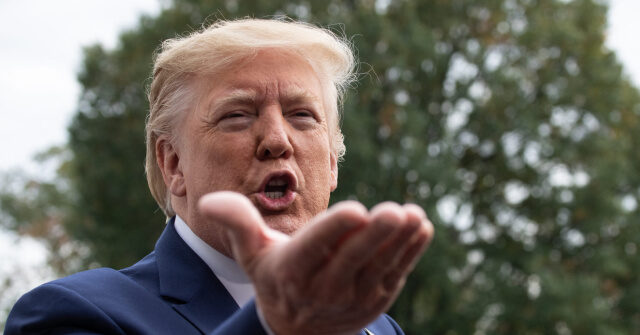In the wake of Donald Trump’s significant electoral victory, Democrats are reassessing their approach towards collaboration on pressing national issues like illegal immigration and the economy. Initially, the Democratic response to Trump’s presidency was marked by a combative stance, fueled by disbelief and anger over the election results. However, with Trump’s recent win, party leaders are acknowledging that a more conciliatory approach may be necessary. Reports indicate that Democrats are beginning to open up lines of communication with Trump and exploring potential areas for bipartisan cooperation, signaling a notable shift from their previous hostility.
Despite the initially resistant attitude from Democrats, Trump’s desire for collaboration could have paved the way for common ground. Yet, the political landscape remained polarized, as evidenced by attempts to impeach Trump twice and a multitude of investigations aimed at undermining his presidency. Even after the 2020 election, which Trump controversially contested, his opponents continued a barrage of attacks, attempting various strategies to politically marginalize him. This relentless opposition has contributed to a politically fragmented environment, leading to a recognition among Democrats that their previous tactics may no longer be effective.
With the fallout from the recent elections still fresh, Democratic leaders are grappling with how to recalibrate their messaging and strategies in response to Trump’s mixed signals on critical issues. The unpredictability that characterized Trump’s first tenure remains, but the political dynamics have changed from 2016. Hillary Clinton’s loss and the realignment of some Democratic constituencies in traditionally Republican districts have prompted party strategists to adopt a more pragmatic stance. While there is still recognition of potential conflicts, the prevailing sentiment seems to be one of cautious engagement rather than outright opposition.
Several Democratic lawmakers have begun to engage with influential figures in Trump’s orbit, such as Elon Musk, signaling a potential pivot toward cooperation on issues like government spending. Some Democrats have even expressed support for select nominees from Trump’s Cabinet, reflecting a willingness to find common ground on certain policies. For instance, Sen. Tammy Baldwin’s endorsement of Trump’s transport secretary pick, former Rep. Sean Duffy, illustrates a shift towards recognizing potential areas of bipartisan agreement, particularly in light of the political realities they have to navigate post-election.
At the state level, governors have shown a mixed response, balancing their roles as both adversaries and collaborators with Trump. While some have indicated a willingness to resist Trump’s policies, they have also openly pledged to work with him on essential issues like infrastructure and immigration. This dual approach reflects the complexity of maintaining political principles while confronting the practicalities of governance. The situation in cities like New York and Denver further amplifies the varied responses to Trump’s administration, where local leaders express strong stances against his policies but are also actively engaging in dialogue with his administration.
Ultimately, the Democrats appear to be transitioning from the role of opposition to that of a more conventional political challenger. This evolution is underscored by comments from party strategists who recognize that the political landscape has irrevocably changed since Trump’s first election. Moving forward, Democrats are steeling themselves to negotiate on critical voter concerns while keeping a watchful eye on Trump’s willingness to collaborate. As they redefine their identity and strategy in the face of Trump’s continued prominence, the party must navigate the intricate balance between resistance and partnership in American politics.

